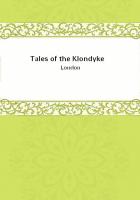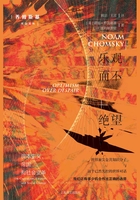Cause Of Pain And Fear I have before observed,1that whatever is qualified to cause terror is a foundation capable of the sublime;to which I add,that not only these,but many things from which we cannot probably apprehend any danger,have a similar effect,because they operate in a similar manner.I observed too,2that whatever produces pleasure,positive and original pleasure,is fit to have beauty ingrafted on it.Therefore,to clear up the nature of these qualities,it may be necessary to explain the nature of pain and pleasure on which they depend.A man who suffers under violent bodily pain,(I suppose the most violent,because the effect may be the more obvious),I say a man in great pain has his teeth set,his eyebrows are violently contracted,his forehead is wrinkled,his eyes are dragged inwards,and rolled with great vehemence,his hair stands on end,the voice is forced out in short shrieks and groans,and the whole fabric totters.Fear,or terror,which is an apprehension of pain or death,exhibits exactly the same effects,approaching in violence to those just mentioned,in proportion to the nearness of the cause,and the weakness of the subject.This is not only so in the human species;but I have more than once observed in dogs,under an apprehension of punishment,that they have writhed their bodies,and yelped,and howled,as if they had actually felt the blows.From hence I conclude,that pain and fear act upon the same parts of the body,and in the same manner,though somewhat differing in degree;that pain and fear consist in an unnatural tension of the nerves;that this is sometimes accompanied with an unnatural strength,which sometimes suddenly changes into an extraordinary weakness;that these effects often come on alternately,and are sometimes mixed with each other.This is the nature of all convulsive agitations,especially in weaker subjects,which are the most liable to the severest impressions of pain and fear.The only difference between pain and terror is,that things which cause pain operate on the mind by the intervention of the body;whereas things that cause terror generally affect the bodily organs by the operation of the mind suggesting the danger;
but both agreeing,either primarily or secondarily,in producing a tension,contraction,or violent emotion of the nerves,1they agree likewise in everything else.For it appears very clearly to me,from this,as well as from many other examples,that when the body is disposed,by any means whatsoever,to such emotions as it would acquire by the means of a certain passion;it will of itself excite something very like that passion in the mind.
[Footnote 1:Part I.sect.8.]
[Footnote 2:Part I.sect.10.]
[Footnote 1:I do not here enter into the question debated among physiologists,whether pain be the effect of a contraction,or a tension of the nerves.Either will serve my purpose;for by tension,I mean no more than a violent pulling of the fibres,which compose any muscle or membrane,in whatever way this is done.]
IV
Continued To this purpose Mr.Spon,in his Recherches d'Antiquite,gives us a curious story of the celebrated physiognomist Campanella.This man,it seems,had not only made very accurate observations on human faces,but was very expert in mimicking such as were any way remarkable.When he had a mind to penetrate into the inclinations of those he had to deal with,he composed his face,his gesture,and his whole body,as nearly as he could into the exact similitude of the person he intended to examine;and then carefully observed what turn of mind he seemed to acquire by this change.So that,says my author,he was able to enter into the dispositions and thoughts of people as effectually as if he had been changed into the very men.I have often observed,that on mimicking the looks and gestures of angry,or placid,or frighted,or daring men,I have involuntarily found my mind turned to that passion,whose appearance I endeavoured to imitate;nay,I am convinced it is hard to avoid it,though one strove to separate the passion from its correspondent gestures.Our minds and bodies are so closely and intimately connected,that one is incapable of pain or pleasure without the other.
Campanella,of whom we have been speaking,could so abstract his attention from any sufferings of his body,that he was able to endure the rack itself without much pain;and in lesser pains everybody must have observed,that,when we can employ our attention on anything else,the pain has been for a time suspended:on the other hand,if by any means the body is indisposed to perform such gestures,or to be stimulated into such emotions,as any passion usually produces in it,that passion itself never can arise,though its cause should be never so strongly in action;though it should be merely mental,and immediately affecting none of the senses.As an opiate or spirituous liquors,shall suspend the operation of grief,or fear,or anger,in spite of all our efforts to the contrary;and this by inducing in the body a disposition contrary to that which it receives from these passions.
V













